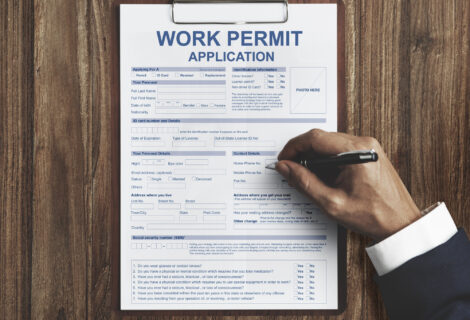Streamlining Immigration Proceedings: The Federal Court’s New Pilot Project
The Federal Court of Canada is bracing for another record-breaking year, expecting to receive 24,000 new immigration filings in 2024. This staggering number represents a fourfold increase compared to the average filings from the five years leading up to the COVID-19 pandemic. In response to this unprecedented surge, the Court is launching a pilot project on October 1, 2024, in collaboration with the Department of Justice and the Citizenship, Immigration and Refugee Law Bar Liaison Committee. This initiative aims to streamline the adjudication of study permit applications that have been rejected under section 72 of the Immigration and Refugee Protection Act (IRPA).
Objectives of the Pilot Project
The primary goal of this pilot project is to simplify the application process by reducing procedural steps and eliminating the need for hearings in certain cases. By doing so, the Court hopes to alleviate the backlog of cases while providing timely resolutions for applicants.
Criteria for Participation
To be eligible for this pilot project, applicants must meet several criteria:
- The study permit application must have been rejected.
- Both the applicant and the Minister of Immigration must agree to participate.
- There must be agreement on the underlying facts, evidenced by the materials submitted to Immigration, Refugees and Citizenship Canada (IRCC), including the full reasons for the decision.
- The case must not be complex, meaning it should not involve issues of inadmissibility, national security, or requests for certified questions.
- The applicant must not request an extension of time to file the Application for Leave.
- No affidavits should be filed by the parties involved.
- IRCC must provide a Simplified Certified Tribunal Record.
Key Procedural Changes
The pilot project introduces several important procedural changes designed to expedite the review process:
- No Hearings Required
Participants in the pilot project will not be required to attend hearings, streamlining the process significantly. - Simultaneous Determination of Leave and Merits
Traditionally, the process involves a two-step approach where a judge first determines whether to grant leave for the application for judicial review, followed by a separate hearing on the merits of the case. Under the new pilot project, these two steps will be combined, allowing for concurrent consideration of both leave and the application for judicial review. - Shortened Timeline
One of the most significant benefits of the pilot project is the anticipated reduction in processing time. The procedure is expected to be completed within five months, a dramatic improvement over the usual 14-18 months.
Resources for Participants
For those interested in learning more about the pilot project, several resources are available, including:
- A detailed slide presentation outlining the project.
- A step-by-step guide for participants.
- A frequently asked questions (FAQ) section to address common queries.
- A comprehensive timeline and process overview.
- A video presentation for visual learners.
Conclusion
The Federal Court’s new pilot project marks a significant step toward addressing the overwhelming demand for immigration proceedings in Canada. By streamlining processes and reducing timelines, this initiative aims to create a more efficient and accessible system for individuals seeking study permits. As the legal landscape continues to evolve, these changes may serve as a model for future reforms in the immigration process.
For more information, visit the official resources provided by the Federal Court and the Department of Justice or call us 416-231-9188






